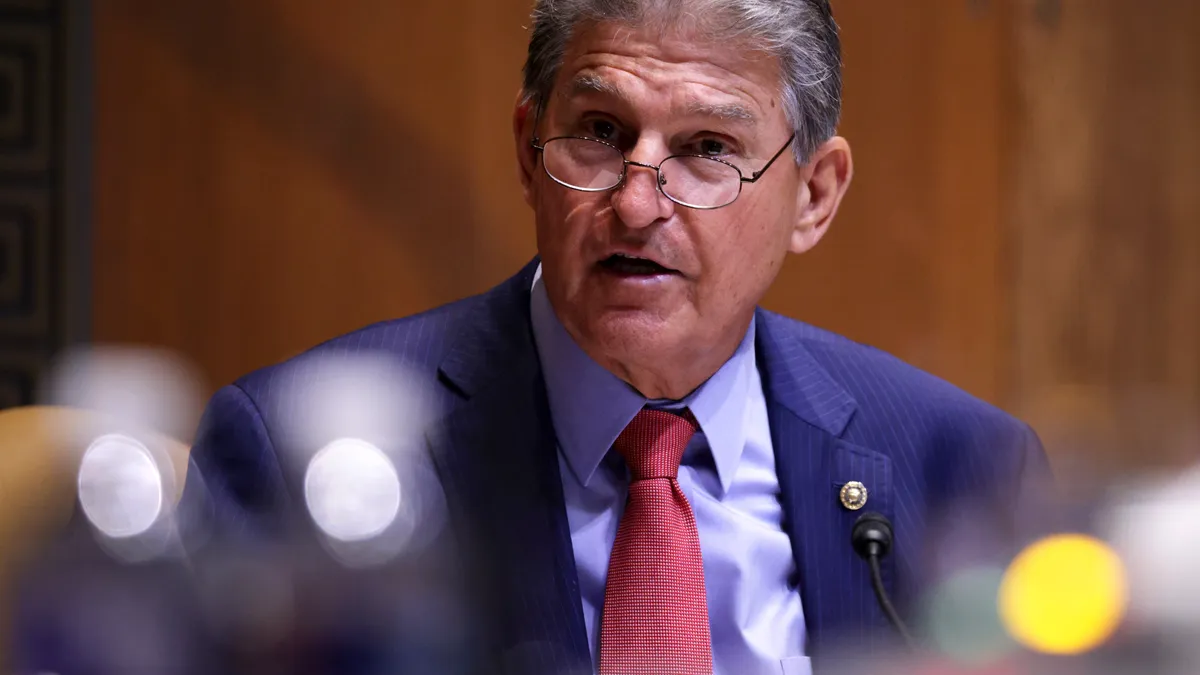Dive Brief:
- Sen. Joseph Manchin, D-W.V., crossed the aisle April 10 to kill the National Labor Relations Board’s joint employer rule.
- Manchin was the single Democrat to join 47 Republicans and two independents in voting for a Congressional Review Act measure of disapproval, a legislative tool that gives Congress the authority to overturn specific executive branch regulations through simple majority votes in both houses. The House passed the CRA measure in question in January.
- President Joe Biden promised to veto the measure during the early debates on it in January. Given the relatively even partisan divide within Congress, it is unlikely that opponents of the joint employer rule could muster the requisite two-thirds majority to overcome a veto.
Dive Insight:
In March, a federal judge in Texas overturned the joint employer rule, setting the stage for a court battle over the regulation, which could nullify the impact of a presidential veto.
The joint employer rule would hold general contractors liable for subcontractor labor violations if the general contractors reserve the authority to control, or indirectly control, several key conditions of employment.
It is similar to, but narrower than, a previous NLRB joint employer standard in place during the Obama administration, which was undone by former President Donald Trump’s NLRB.
In March, Associated Builders and Contractors praised the rule being struck down in court.
“Under the 2023 final rule, contractors would be vulnerable to increased liability and risk, making them less likely to hire subcontractors, most of which are small businesses,” said Ben Brubeck, ABC vice president of regulatory, labor and state affairs, in a news release. “The rule clearly would have had a harmful effect on a significant segment of the construction industry: small businesses."
A strong joint employer standard, in addition to holding GCs liable, may make it easier for unions to organize by reducing the legal fragmentation of employment, which is generally regarded as an impediment to organizing.
The preservation of weak joint employer standards is a political priority for employer groups, which lamented that the change in question lacks clarity, potentially exposing them to litigation.
















